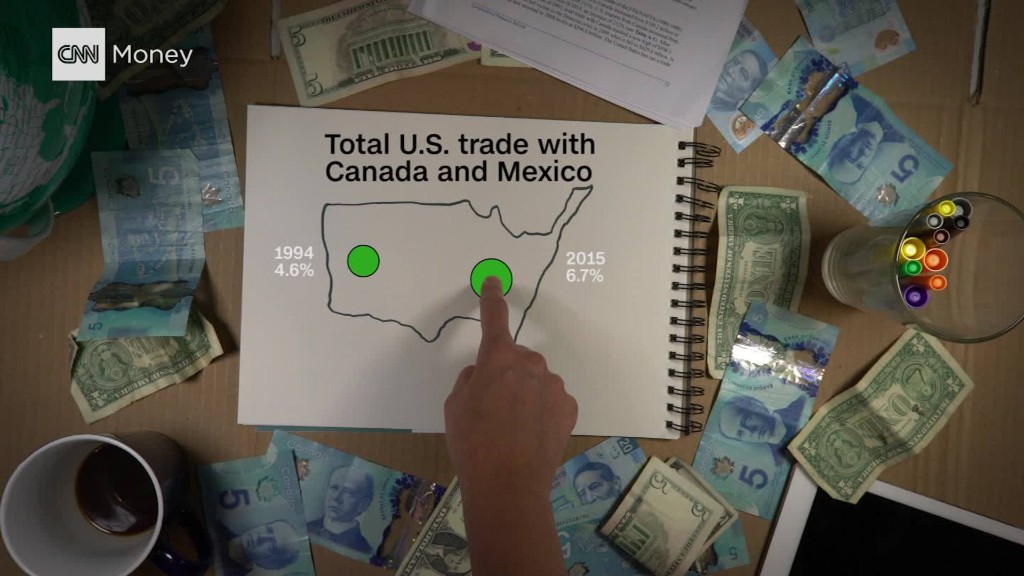
The future of NAFTA was already gloomy. And it just got darker.
The United States, Canada and Mexico return to the negotiating table Tuesday for talks on rewriting the three-nation trade agreement, one day after President Trump applied tariffs that will hurt Mexico, among other countries.
NAFTA talks were already complicated by tariffs that the United States imposed on Canadian paper two weeks ago. Canadian officials called those "unfair and unwarranted."
Then, on Monday, the Trump administration announced a tariff of 30% on imported solar panels and up to 50% on imported washing machines.
Mexico is one of the biggest exporters of washing machines to the United States. Its economy ministry vowed to use "all legal resources available in response to the U.S. decision."
The three countries are meeting in Montreal for their sixth round of NAFTA talks. They've made no progress on divisive issues, and the Trump administration's major proposals, particularly one on auto manufacturing, are unacceptable to Canada and Mexico.
Trump has repeatedly threatened to withdraw the United States from the trade agreement if he can't get a better deal for U.S. workers. One of his counterparts, Canadian Prime Minister Justin Trudeau, is trying to pull Trump back from the brink.
"We're working very hard to make sure that our neighbor to the south recognizes how good NAFTA is and that it has benefited not just our economy but his economy and the world economy," Trudeau said Tuesday at the World Economic Forum in Davos, Switzerland.
Related: Trump slaps tariffs on foreign solar panels and washing machines
The Trump administration used something called safeguard tariffs on Monday, meant to provide breathing room to American companies struggling to compete with foreign competitors. The tariffs on washers and solar panels last three years and taper down.
In the past, the United States has exempted some of its most important trading partners from safeguard tariffs. But it did not exempt Mexico on Monday, even though the independent U.S. International Trade Commission noted that Mexican washing machines pose no threat to U.S. producers.
The tariffs on washing machines and solar panels will hurt Mexico, China and South Korea the most.
Mexico shipped $240 million worth of washers to the United States in 2016, according to the ITC. Mexico also exported $1.1 billion in solar panels to the United States, according to its own economy ministry.
Round 6 of the NAFTA talks concludes next Monday.
--CNNMoney's Alanna Petroff contributed to this report from Davos, Switzerland.


